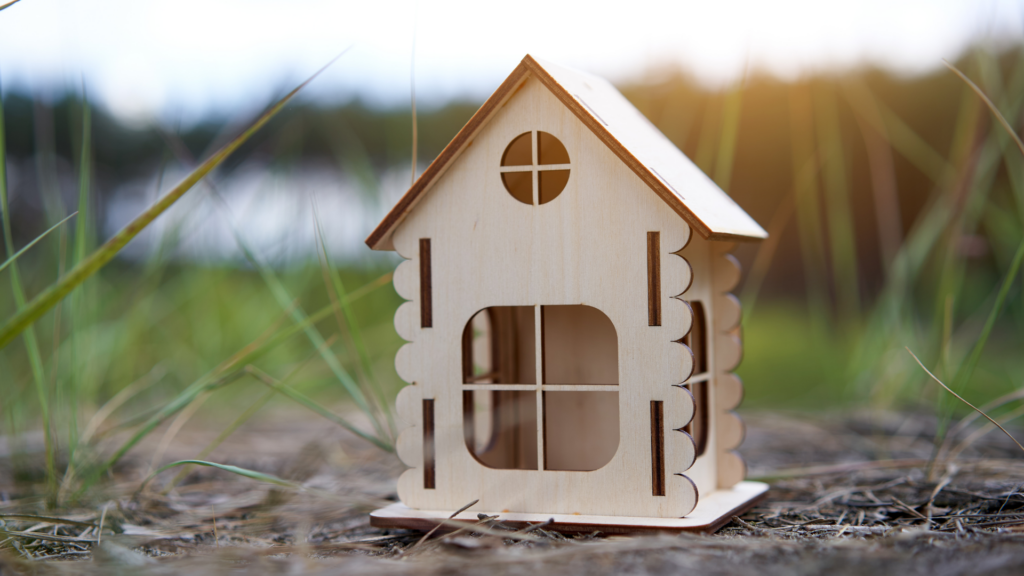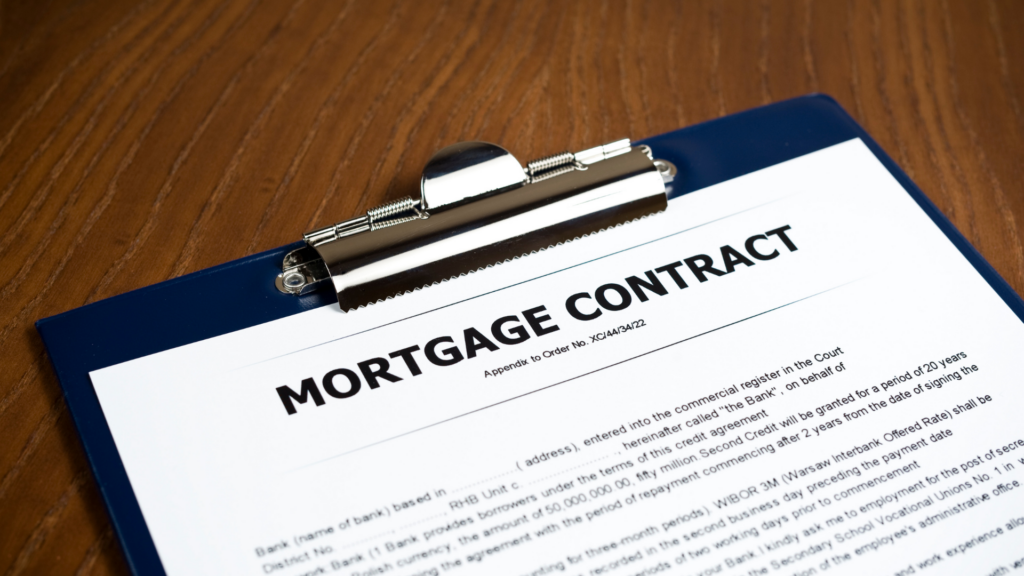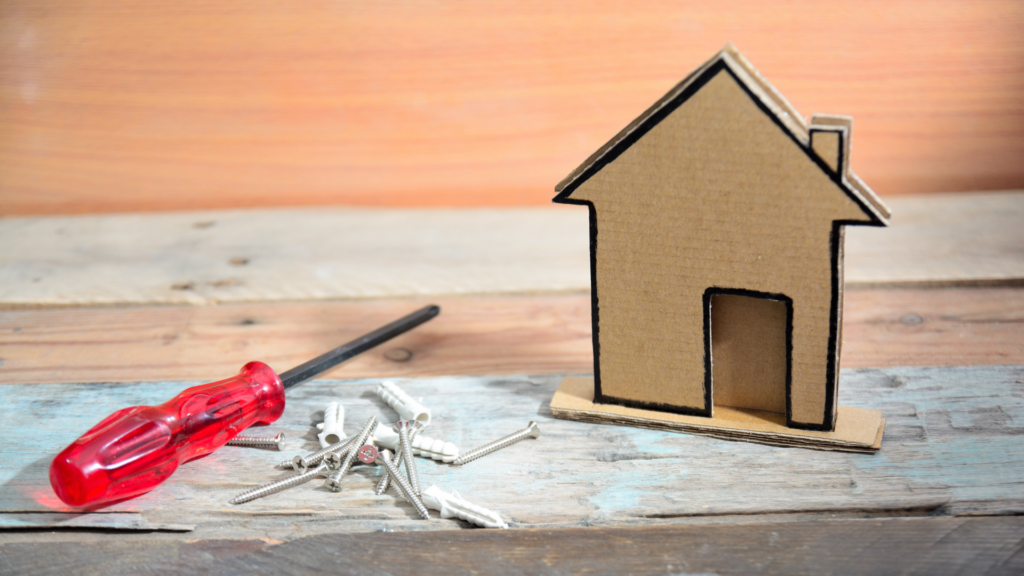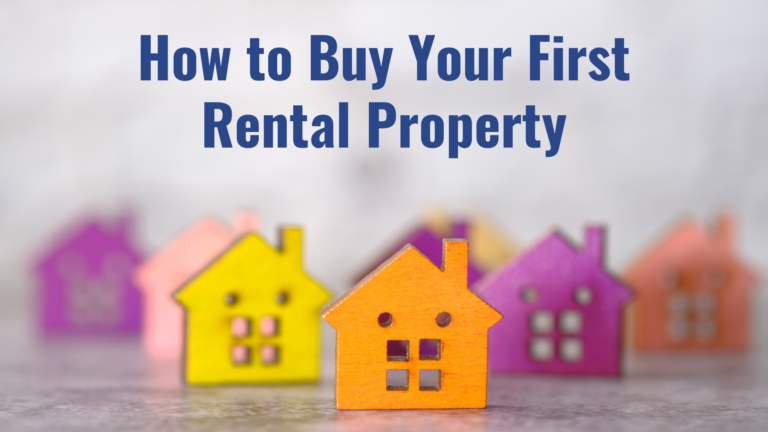Many investors choose to buy real estate as a way to diversify their portfolios and build a stream passive income.
If you’re looking to invest in your first rental property, this guide is for you!
The guide will be broken down into four major topics:
- The Location
- The Mortgage
- The Upkeep
- The Cash Flows
Let’s do it!
The Location

Location is one of the most important factors to consider when choosing an investment property.
Firstly, consider the property values of homes in different areas. For example, you’ll be looking at a much more expensive property when you consider buying a house in a more sought-after state like California or Hawaii. On the other hand, you’ll find some nice properties at much cheaper prices in places like Georgia or South Carolina.
It’s also important to consider the quality of the neighborhood in which the property is located.
Many real estate investors opt to find undervalued properties in up-and-coming neighborhoods that have a lot of potential. Years down the road, an investment like this can pay off big time if the neighborhood becomes much more desirable and the values of the homes in the neighborhood shoot up.
Besides the value of the home itself, keep in mind some of the other geographic factors that might make a certain property attractive to potential homebuyers.
For example, if you’re investing in a single or multi-family home and planning on renting it out to families with children, you’ll want to make sure that the property is located in a good school district, close to parks and playgrounds, and within a reasonable distance of other entertainment such as movie theaters or amusement parks.
The Mortgage

Unless you have $200,000 in cash sitting in a money market account somewhere, you’ll have to finance your rental property purchase through a mortgage.
Mortgages can be a very scary but very useful form of debt to take on, so let’s take a look at some of the details to help you make sure you find the right mortgage for you.
The Down Payment
Down payment requirements are generally higher for investment properties than they are for properties that the owner intends to live in. This is because these mortgages are seen as higher-risk loans; you might not take care of the property since you aren’t living in it, and you might fail to find a renter to cover the mortgage payments which could mean defaulting on the loan.
You may have heard of PMI, or private mortgage insurance.
This is a type of insurance that protects the lender in case you default on your loan.
Typically, lenders will let you pay a smaller down payment if you purchase PMI.
When you combine PMI with special loans like FHA loans, you can get your down payment down to as little as about 3%.
But since PMI and FHA loans are not available for investment properties, you’re likely looking at a down payment of around 20% or higher.
The Interest Rate
Interest rates are also higher for investment property mortgages than for owner-occupied property mortgages.
Of course, interest rates vary all the time, so you can wait until rates are in your favor before seeking out a mortgage, but just keep in mind that your interest rate for a rental property will likely be up to 100 basis points, or 1%, more than what it would be for a property you’re living in.
The Monthly Payment
Your monthly mortgage payment will depend largely on the term of your mortgage.
If you choose to take out a 30-year mortgage, your payment will be lower since you have more time to pay it off. Of course, this means that you’ll end up paying more in total at the end of the mortgage.
If you choose a shorter term, like a 15-year mortgage, you’ll pay more every month but less in total.
The Upkeep

While being a landlord can be a great way to build passive income and set yourself up for the rest of your life, landlording is often a difficult and time consuming occupation.
If you’ve ever lived in a house (especially an older house, like one built in the early 1900s), you know that things break all the time.
Sometimes there’s a leak that’s causing damage to a floor or ceiling; sometimes there’s a toilet that needs to be unclogged; sometimes the air conditioning system breaks, leaving the house steaming hot and the tenants unhappy.
In most situations, issues like these will be your responsibility as a landlord to resolve.
So you’re left with a few different options when it comes time to solve a problem that’s occurred in your house.
Do It Yourself
Your first option is to fix the problem yourself.
If you’re lucky enough to be skilled at home repair, then this option will save you quite a bit of money.
The problem is that many people don’t have the skills or the time necessary to go over to their property and fix the problem by hand…
Which leads us to the second option.
Hire a Professional
You can choose to hire a specialist to come and fix the problem for you.
If you’re unsure how to fix a leak or repair an AC unit, then calling in a repairman might be the best option for you.
While this option still involves taking the time to find and coordinate with a good specialist, it will be much less time consuming than fixing the problem yourself.
Unfortunately, this option will be quite a bit more expensive. You can expect to be charged several hundred dollars in labor for a typical repair, while parts can range from hundreds to thousands of dollars, depending on the severity of the break.
Hire a Property Manager
If you don’t have the time to coordinate an appointment with a professional or you want a completely hands-off landlording experience, there is a third option available.
By hiring a professional property management company, you can essentially hand off all of your landlording tasks to a third party.
As you can probably imagine, this option comes with a price, which we will discuss in more detail later in this article.
The Cash Flows
If you’re buying a property for the purpose of renting it out to tenants, chances are you’re looking to make a profit on your investment so that you can have some passive income.
While making a rental property a cash-flow positive investment is a very achievable goal, it’s not as easy as it sounds.
You’re going to have a lot more expenses than just your mortgage payment, so your profit margin can become quite slim.
Let’s talk about what you need to keep in mind.
Inflows
Your cash inflows from owning a rental property will obviously come in the form of the rent paid to you by your tenants. This income is considered ordinary income for tax purposes.
So if you make $50,000 a year from your full-time job and you earn $12,000 a year from rental income, your total taxable income (before deductions) will be $62,000.
The fact that rental income is taxed as ordinary income might sound like a let-down, but there are some big caveats to owning a rental property that can lead to some important tax deductions.
For example, your rental income is not subject to FICA taxes like the income you earn from your full-time job. That’s already 7.65% less than you have to pay on your other income!
Outflows
Now comes the not-so-fun part.
Mortgage Payments
Your mortgage payment will most likely be the biggest expense you have on your rental property.
Insurance
There are several types of insurance that you either must or should buy to protect your home and yourself, including homeowners insurance and landlord insurance.
You’ll have to pay premiums on these insurance policies every month.
Maintenance and Repairs
Whenever something breaks (and it will!), you’ll have to either fix it yourself – which may require purchasing tools or parts – or hire a professional to fix it for you.
Property Management
If you choose to have a property management company take care of the day-to-day landlording tasks associated with your rental property, you’ll have to pay them monthly as well.
The typical property manager charges around 10% of the rent that the landlord charges their tenants. So, if you rent out your property for $2000 a month, you’ll have to pay the property manager $200 a month.
Property Taxes
Property taxes in the U.S. are ad valorem taxes, meaning the amount you pay is based on the assessed value of your home.
As the owner of a rental property, you’ll be required to pay property taxes. Property taxes are usually paid monthly as part of your mortgage payment.
The Good News
Thankfully, many of the expenses you have to pay related to your rental property are tax deductible.
For example, while your entire monthly mortgage payment may not be tax deductible, the interest on your mortgage is.
Maintenance, insurance premiums, property management fees, and property taxes are also tax deductible!
When you combine these deductions with other deductions such as depreciation, you might even decrease the taxable income from your rental property so much that you pay little to no taxes on it!
If you want to learn more about the cash flows associated with owning a rental property and how they’re taxed, check out Millionacres, a real estate service offered by the Motley Fool. It has plenty of advice on real estate investing, financing, and taxes.
Speaking of the Motley Fool…
Did you know they are Wall Street Survivor’s #1 rated Investment Newsletter for the last 5 years in a row? Since the service started, their stock picks have continually outperformed the S&P 500. Here are some facts about their recent performance:
- the 24 Motley Fool stock picks from 2016 are up an average of 368%
- their 24 picks from 2017 are up an average of 200%
- the 2018 picks are up 215%
- the 2019 picks are up 118% compared to S&P500 49%
- and quite impressively, their 24 current picks from 2020 are already up an average of 82% and the S&P500 is up an average of only 33% over the year.
If you want a full team of professional analysts helping you pick stocks, sent directly to your inbox twice a month, click here to get 50% off a full year of Motley Fool Stock Advisor stock picks! If you want to read our full review, click here.
Final Thoughts
The decision to invest in a rental property should not be taken lightly. It can be costly and risky, and does not come with many of the same tax and mortgage advantages that owner-occupied properties receive.
Make sure to consult real estate and financial professionals before you choose to invest in an income-producing property.
But if you do choose to make it happen and do it the right way, purchasing a rental property can be a great way to build a passive income stream to supplement or even replace your income!
We are paid subscribers to dozens of stock newsletters. We actively track every recommendation from all of these services, calculate performance, and share the results of the top performing stock newsletters whose subscriptions fees are under $500. The main metric to look for is "Excess Return" which is their return above that of the S&P500. So, based on last 3 years ending June 29, 2025:The Best Stock Newsletters as of June 29, 2025
Ranking of Top Stock Newsletters Based on Last 3 Years of Stock Picks
Rank Stock Newsletter Stock
PicksAverage
ReturnExcess
ReturnPercent
ProfitableMax %
Return1. ![]()
Alpha Picks76 63% 40% 73% 969% Summary: 2 picks/month based on Seeking Alpha's Quant Rating; Retail Price is $499/yr. See details in our Alpha Picks Review. July, 2025 Promotion:
Save $502. ![]()
Moby.co308 43.3% 12.3% 74% 1764% Summary: 60-150 stock picks per year, segmented by industry; Retail Price is $199/yr. Read our Moby Review. July, 2025 Promotion:Next pick free! 3. ![]()
Stock Advisor72 41.2% 6.9% 78% 258% Summary: 2 picks/month and 2 Best Buy Stocks lists focusing on high growth potential stocks over 5 years; Retail Price is $199/yr.
Read our Motley Fool Review.July, 2025 Promotion: Get $100 Off 4. ![]()
Value Investor39 17.5% 6.1% 38% 410% Summary: 10-25 stock picks per year based on Zacks' Quant Rating; Retail Price is $495/yr. Read our Zacks Review. July, 2025 PROMOTION:$1, then $495/yr 5. ![]()
Rule Breakers66 40.0% 4.7% 61% 311% Summary: 2 picks/month focusing on disruptive technology and business models; Lifetime average return of 355% vs S&P500's 149% since 2005; Now part of Motley Fool Epic. Read our Motley Fool Epic Review. Current Promotion: Save $200 6. 
TipRanks SmartInvestor121 10.6% 3.7% 55% 340% Summary: About 1 pick/week focusing on short term trades; Lifetime average return of 355% vs S&P500's 149% since 2015. Retail Price is $379/yr. Read our TipRanks Review. Current Promotion: Save $180 7. 
Action Alerts Plus394 20.0% 3.4% 57% 220% Summary: 100-150 trades per year, lots of buying and selling and short term trades. Read our Jim Cramer Review. Current Promotion: None 8. ![]()
Stock Advisor Canada36 32.3% 0.5% 69% 378% Summary: 1 pick/month from the Toronto stock exchange; Retail Price is CD$199/yr. Read our Motley Fool Canada Stock Advisor Review. July, 2025 Promotion: Save $100 Top Ranking Stock Newsletters based on their last 3 years of stock picks' performance through May 31, 2025 as compared to S&P500. S&P500's return is based on average return of S&P500 from date each stock pick is released. NOTE: To get these results you must buy equal dollar amounts of each pick on the date the stock pick is released. Investor Business Daily Top 50 based on performance of FFTY ETF.
